Search Results
Showing results 61 to 80 of 111
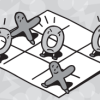
Toe-Tac-Tic
Source Institutions
In this activity, learners play a game similar to Tic-Tac-Toe. In this version, learners try NOT to get three-in-a-row. The player who gets three-in-a-row first loses!
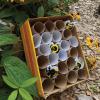
Pollinator Play
Source Institutions
In this activity, learners will build a bee hotel for pollinators. Learners will explore building and ecology through this activity.
Many Seeds: Estimating Hidden Seeds
Source Institutions
In this activity, learners will estimate how many seeds are in a fruit or vegetable, then count to find out. The result: mix estimation with healthy eating.

Sumo
Source Institutions
In this version of a Sumo wrestling bout, players use mathematical skills to move their opponent's counter beyond the track and "out of the ring." Learners reveal playing cards and the player with the
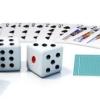
How High (or Low!) Can You Go?
Source Institutions
In this math activity, learners play a game using their number sense to make the highest or lowest number possible. Use this activity to explore place value and/or decimals.

Can Energy be Created or Destroyed?
Source Institutions
In this activity, learners explore conservation of energy by experimenting with a solar cell light device.
Pour Some: Measure Serving Size
Source Institutions
Make snack time into measuring time and learn to read Nutrition Facts labels. Try this when you’re using “pourable” foods, such as cereal, yoghurt, or juice.
Narrow It Down: Asking Yes-No Questions
Source Institutions
In this activity, the learner asks yes-no questions to identify a secret object (similar to Twenty Questions). This game is easy to adapt for different ages and different kinds of contexts.
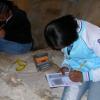
Fossil Age Estimation Model
Source Institutions
In this activity (page 1 of the PDF under SciGirls Activity: Dinosaurs), learners will model how paleontologists estimate the age of fossil discoveries by extracting “fossil” playing cards from newspa
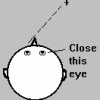
Our Sense of Sight: How We Perceive Movement, Depth and Illusions
Source Institutions
In this activity, learners investigate visual perception as well as plan and conduct their own experiments.

Tossing Coins
Source Institutions
In this math game (Page 17 of the Are You Game? PDF), learners investigate probability by tossing coins.
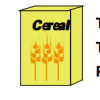
Number Sense and Computation: Food For Thought
Source Institutions
In this math lesson, learners identify and compare unit costs of given items. Learners use computation skills, problem solving and number sense to find the cost of an ounce of cereal.

How Long Can You Hold Your Breath?
Source Institutions
In this activity (on page 142 of the PDF), learners will compare breathing rates before and after hyperventilation to explore how reduced carbon dioxide levels in the blood lower the need to breathe.

Mix It Up
Source Institutions
In this math lesson, learners are introduced to proportional reasoning through modeling, sharing, and questioning techniques.
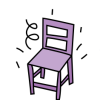
Gravity and Muscles
Source Institutions
In this activity about center of gravity (page 23 of PDF), learners investigate how the body adjusts to the force of gravity to remain balanced.

Make A Map for A Treasure Hunt
Source Institutions
In this activity, learners will explore how maps can provide information about a place and help us find our way from one location to another.
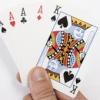
Two Sets!
Source Institutions
In this card game, learners make two sets of three cards that are alike. Learners must justify to the rest of the players why the three cards belong in each set.
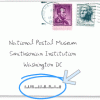
Decode the Barcode
Source Institutions
In this online activity, learners crack the special code imprinted on envelopes to help the U.S. Postal Service deliver the mail.

Size, Scale and Models
Source Institutions
In this activity, learners take measurements and create charts to learn about the size of dinosaurs and their relative scale to humans.

Raising the Level of Carbon Dioxide in Your Blood
Source Institutions
In this activity (on page 146 of the PDF), learners will explore the effects of increased carbon dioxide in the bloodstream.
